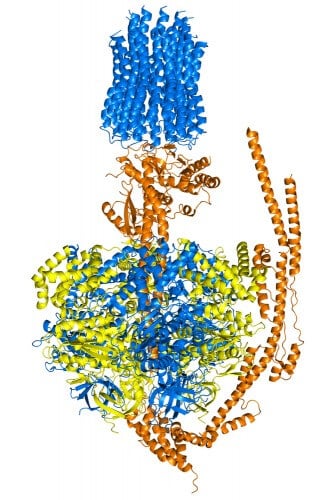This is the development of a new approach to the synthesis of complex molecules, for which Professor Ilan Mark from the Faculty of Chemistry received a research grant of 2.4 million euros from the European Union for "thinking differently in chemical synthesis and going against the grain"

Technion researchers have developed a new method, the "zipper" method, for the selective synthesis of complex molecules. This is reported by the prestigious scientific journal "Nature".
The synthesis of new molecules is central to the development of many areas of science, from medicine to materials science. Since the 19th century, the accepted approach to the synthesis of organic substances has been through the creation of new bonds, mainly carbon-carbon bonds, while controlling their spatial structure (stereochemistry). Is this the only way to make complex organic molecules?
In an article they recently published in the prestigious scientific journal "Nature", Professor Ilan Mark and his research group from the Shulich Faculty of Chemistry demonstrated for the first time an innovative idea in which they combined the simultaneous activation and breaking of carbon-carbon and carbon-hydrogen bonds to obtain One of the complex compounds that is difficult to prepare by the conventional method. They used a molecule on one side of which there is tension due to the presence of a triple ring and on the other side there is a double bond between two carbon atoms. By adding a zirconium compound, they were able to cause the double bond to migrate, similar to the action of a zipper, up to the section where the triple ring is located, which resulted in the selective breaking of the stretched carbon-carbon bond. "Just like you zip up a coat and connect the two sides of the zipper down and bring it up," explains Professor Mark. "Sometimes this connection between the two sides of the zipper breaks when you move it. We were able to carry out this disconnection and break the desired carbon-carbon bond in a pre-planned manner."
This breakthrough joins the publication about a year ago, also in Nature, in which Professor Marek and his team reported on an innovative way to create molecules with a chiral center and this in just one step from the starting material. Until then, researchers had reached this in several stages.
Professor Mark's two groundbreaking studies have far-reaching implications for the synthesis and development of new drugs and are of great interest in the scientific and industrial community. Due to "innovative and different thinking in synthetic chemistry and going against the grain" Professor Mark has now received a large grant of 2.4 million euros from the European Union and he is about to recruit more researchers to engage in this promising research.
For developing synthetic methods in a completely different way from the usual, Professor Ilan Mark received in 2012 the prize of the Israeli Society of Chemistry and the prize of creativity in synthesis of
Janssen Pharmaceutica.

2 תגובות
Congratulations and best wishes for further success to Professor Ilan Mark and his staff.
It turns out that sometimes "going against the flow" is only helpful.
Europe wants Israel to be its "Silicon Valley". But you should be careful not to be committed only to the Europeans. It should also cooperate with Brazil, Russia and China. Of course there is also cooperation with America. In any case, just do not join the European Union - because that is the end of the country the jewish